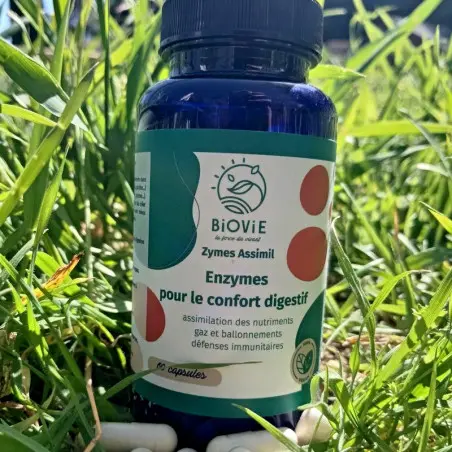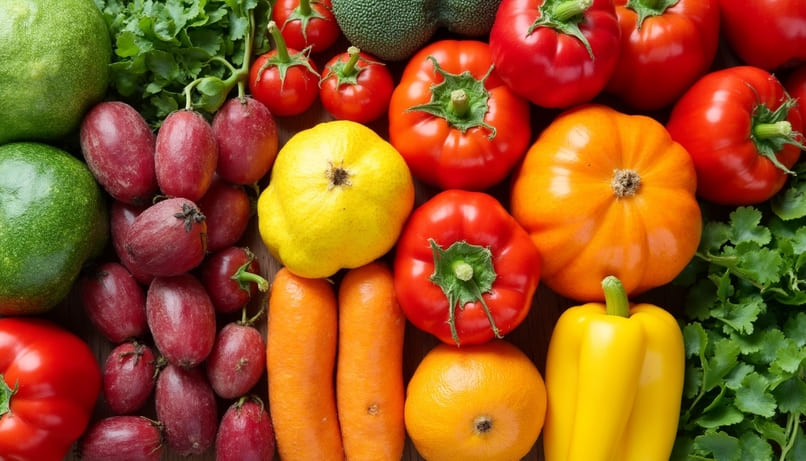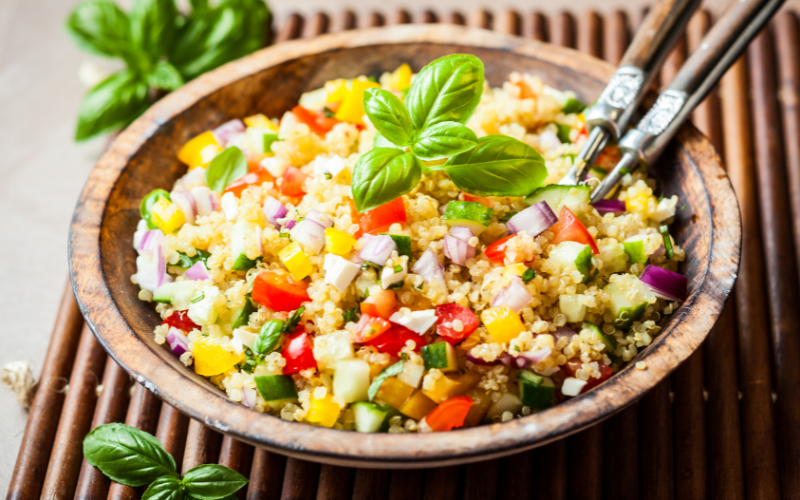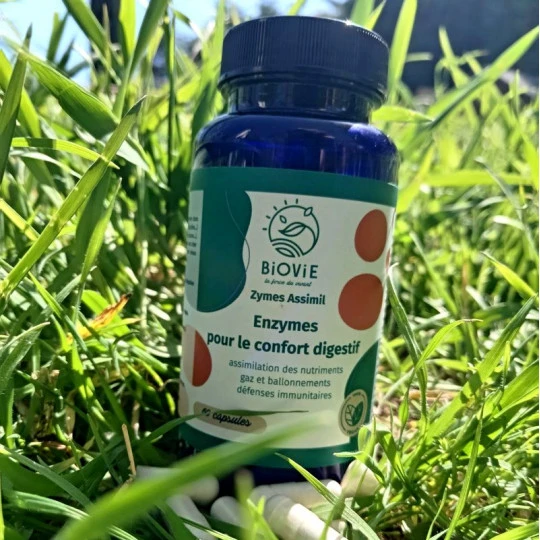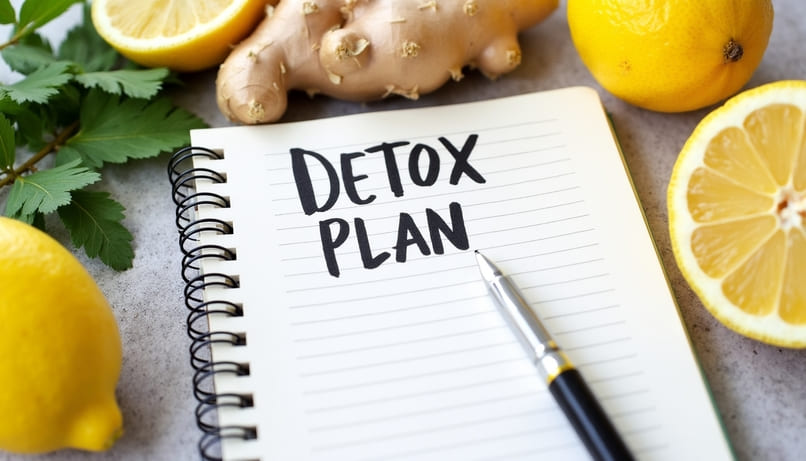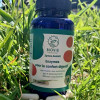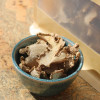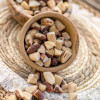The assimilation of nutrients is a crucial aspect of our health, often overlooked in our modern eating habits. At Biovie, we believe that the quality of our diet is not limited to what we eat, but also to how our body absorbs these nutrients, and this perspective is crucial.
Enzymes will be to the 21st century what vitamins were to the 20th century, that is certain, and it represents a major paradigm shift in health: optimizing the functioning of existing bodily processes rather than seeking to introduce an external substance.
In this article, we will explore health practices that allow us to better assimilate what we eat, in accordance with our philosophy ofliving food and organic.
After reading this article, you will discover:
- The importance of food assimilation for your overall health,
- Simple and natural techniques for improve your digestion,
- The crucial role of enzymes in the process of assimilation,
- Practical tips to optimize your diet and well-being.
The importance of chewing in the assimilation of nutrients
Chewing, often overlooked in our fast-paced lifestyle, is nonetheless the first crucial step in our digestion. This mechanical process is not limited to simply grinding food; it plays a fundamental role in the proper assimilation of nutrients. Indeed, proper chewing prepares the food to more efficient digestion, allowing our body to extract the maximum benefits from what we consume.
When we chew conscientiously, we increase the surface area of the food in contact with our digestive enzymes. This mechanical action also stimulates the production of saliva, which is rich in Enzymes which begin to break down complex carbohydrates right from the mouth. Moreover, prolonged chewing sends satiety signals to the brain, contributing to better regulation of our appetite. Thus, by taking the time to chew well, we are not only preparing our food for digestion; we are enhancing our overall nutrient assimilation process, promoting good digestive system function and better overall health.
Chewing, the first step of digestion
Chewing is much more than just a mechanical action; it is the crucial first step in our digestive process. It plays a fundamental role in optimizing the absorption of nutrients throughout the digestive tract.
The benefits of chewing
- Reduces the size of food particles,
- Increases the surface area of contact with digestive enzymes,
- Stimulates saliva production,
- Activates the parasympathetic nervous system,
- Regulates appetite.
How chewing improves digestion
Mechanical fragmentation
Chewing reduces the size of food, thus facilitating:
- The work of gastric juices,
- The action of intestinal enzymes,
- A more efficient breakdown of food,
- A better extraction of nutrients.
Salivary stimulation
Chewing stimulates the production of saliva, which contains essential enzymes:
- Salivary amylase begins to break down complex carbohydrates right in the mouth,
- The more we chew, the more salivary enzymes we produce.
A study published in the "Journal of Texture Studies"showed that prolonged chewing significantly increased the activity of salivary amylase, thereby improving the digestion of carbohydrates."
Activation of the digestive system
Conscientious chewing:
- Activates the parasympathetic nervous system,
- Prepare the entire digestive system,
- Triggers the secretion of gastric acid and pancreatic enzymes.
Impact on appetite and weight control
Research published in the "American Journal of Clinical Nutrition"have demonstrated that:"
- Longer chewing reduces food intake.
- It increases satiety,
- It contributes to better weight control.
Practical advice
To optimize your digestion and nutrient absorption:
- Chew each bite at least 20 to 30 times before swallowing.
- Take the time to savor your food,
- Eat in a calm and relaxed environment.
By adopting these simple yet effective habits, you can greatly improve your digestive health and overall well-being, while fully enjoying the benefits of the foods you consume.
Techniques to improve chewing
Chewing is an art often neglected in our hurried society. However, it plays a crucial role in healthy digestion and optimal absorption. Here are some simple and effective techniques to improve your chewing practice:
- Count your chews: Start by setting a goal of 20 to 30 chews per bite. This may seem like a lot at first, but with practice, it will become natural. This technique will help you become aware of your chewing pace and gradually slow it down.
- Put your cutlery down between each bite. This simple gesture will help you resist the temptation to take another bite before you have completely chewed the previous one. It will also allow you to better appreciate the flavors and textures of your food.
- Choose foods that require more chewing: Incorporate raw foods into your diet, such as crunchy vegetables, nuts or seeds. These foods naturally rich in dietary fiber and nutrients will require you to chew more, thereby strengthening your chewing muscles.
- Practice mindfulness during your meals: Focus on the act of eating by eliminating distractions such as the television or phone. This will help you be more attentive to your chewing and better perceive your body's signals of satiety.
- Vary the textures on your plate: By combining foods with different textures, you will naturally stimulate your desire to chew. For example, add some chia seeds or some crushed nutsTo your salad to create a contrast of textures.
To strengthen the muscles of your jaw, you can also practice some simple exercises:
- The exercise of resistance: Place your hand under your chin and gently press upwards while opening your mouth. Hold this position for 5 to 10 seconds, then release. Repeat 10 times.
- Chewing without food: Pretend to chew without any food in your mouth for 30 seconds to 1 minute, making sure to engage all the muscles in your jaw.
- Jaw stretching: Open your mouth wide, then slowly move your jaw from left to right. Repeat this movement 10 times.
By incorporating these techniques and exercises into your daily routine, you will gradually improve your chewing. This will not only allow for a good assimilation nutrients from your meals, but you will also rediscover the pleasure of eating mindfully. Remember that chewing is the first step to effective digestion and better overall health.
The enzymatic potential of raw foods
Raw foods and fermented foods are a true nutritional goldmine. as I explain to you in all the articles of this blog, largely thanks to their richness in active enzymes, completely absent from cooked, fried, or pasteurized foods. These biological molecules play a crucial role in our digestion and nutrient absorption. Unlike cooked foods, raw foods retain their enzymatic potential intact, thus offering numerous benefits for our digestive and overall health.
The Enzymes are proteins that act as biological catalysts, speeding up chemical reactions in our bodies. In the context of digestion, they are essential for breaking down food into nutrients that our bodies can absorb and use. Raw foods naturally contain Enzymes which begin the digestion process as soon as we consume them. This pre-digestion eases the work of our digestive system, allowing for proper nutrient absorption and reducing the workload of our digestive organs.
Cooking, especially at high temperatures, can unfortunately destroy or denature these valuable enzymes. This is why integrating a greater proportion of raw foods into our diet can significantly improve our digestion and nutrient absorption. This does not mean adopting an entirely raw diet, but rather finding a balance that suits us by gradually incorporating more raw foods and more fermented foods in our daily meals.
The benefits of raw foods for assimilation
Raw foods offer numerous benefits for our digestive health and our ability to absorb essential nutrients. Their main asset lies in their intact enzymatic potential, which plays a crucial role in the process of digestion and nutrient absorption.
When we consume raw foods, we benefit from their natural enzymes, which begin to break down the food as soon as it enters our mouth. This pre-digestion process reduces the workload of our digestive system, allowing for more efficient nutrient absorption. For example, the enzyme amylase present in raw fruits helps break down complex carbohydrates, thereby facilitating their absorption by the body.
Raw foods also retain their vitamin and mineral content intact. Cooking, especially at high temperatures, can destroy or significantly reduce the content of certain essential nutrients, such as vitamin C, some B vitamins, and antioxidants. By consuming these foods in their natural state, we maximize our intake of these vital nutrients.
Among the foods particularly rich in natural enzymes, there are:
- The papaya: Rich in papain, an enzyme that helps break down proteins.
- ThePineapple : contains bromelain, an enzyme with anti-inflammatory properties that aids in the digestion of proteins.
- The Lawyers : rich in lipase, an enzyme that helps break down fats.
- Bananas: contain amylase and glucosidases that help break down complex carbohydrates.
- The sprouted seeds : During the germination process, enzymatic activity increases significantly, making nutrients more bioavailable.
It is important to note that incorporating raw foods into our diet does not necessarily mean adopting a 100% raw diet. Even adding a few servings of raw foods at the beginning of Meal can have very significant beneficial effects on our digestion and assimilation of food.
A study published in the "Journal of Nutrition"in 2008 showed that the consumption of raw foods was associated with higher levels of beta-carotene, vitamin C, and folates in the blood, suggesting better absorption of these nutrients." [1].
By gradually incorporating more raw foods into our diet, we can improve our digestion, increase our daily intake of essential nutrients, and support our overall health. Remember that variety is key: try to incorporate a wide range of Fruits, raw vegetables, nuts, and seeds to benefit from a wide range of enzymes and nutrients.
Incorporate more raw foods into your diet
Incorporating more raw foods into your daily diet is an excellent way to benefit from their enzymatic potential and improve nutrient absorption. Here are some practical suggestions to increase your consumption of raw foods in a tasty and nutritious way:
- Start the day with a green smoothie : Mix leafy green vegetables (spinach, kale), some fresh fruits and the chia seeds or linen for a Breakfast rich in enzymes and nutrients.
- Add raw vegetables to each meal: Prepare a colorful plate of assorted raw vegetables such as carrots, cucumber, bell peppers, and cherry tomatoes. These foods are not only rich in enzymes but also in dietary fiber, which promotes good digestion.
- Experiment with salads: Create original salads by combining raw vegetables, fresh fruits, nuts and seeds. Add fresh herbs for more flavor and nutritional benefits.
- Adopt the sprouted seeds : Sprouted seeds, such as alfalfa or the broccoli, are true concentrates of enzymes and nutrients. Add them to your salads, sandwiches, or smoothies for a nutritional boost.
- Discover dehydrated fruits or freeze-dried fruits: Low-temperature dehydrated fruits, as well as the freeze-dried fruits,retain their enzymes while offering a convenient alternative to fresh fruits. They are perfect as a snack or to enhance your dishes.
- Prepare sauces and raw dips : Replace industrial sauces with homemade raw versions, such as guacamole, tahini sauce, or Raw pesto.
To inspire you, here is a simple and delicious recipe using raw foods:
Sprouted quinoa salad with crunchy vegetables
Ingredients:
- 1 cup of sprouted quinoa
- 1 cucumber, diced
- 1 red bell pepper, thinly sliced
- 1 carrot, grated
- 1/4 cup of sunflower seeds
- Juice of a lemon
- 2 tablespoons of extra virgin olive oil
- Sea salt and freshly ground black pepper, to taste
- Fresh herbs (parsley, cilantro, or mint), chopped
Instructions:
- In a large bowl, mix the sprouted quinoa with the chopped vegetables and sunflower seeds.
- In a small bowl, whisk the lemon juice with olive oil, salt, and pepper to create a light vinaigrette.
- Pour the dressing over the salad and mix gently.
- Add the fresh herbs and mix again.
- Let it rest for 10 minutes before serving to allow the flavors to blend.
This recipe is not only rich in enzymes and nutrients, but it is also delicious and easy to prepare.
The role of digestive enzymes in the assimilation of nutrients
The digestive enzymes play a crucial role in our ability to effectively absorb nutrients from our diet. These specialized proteins act as biological catalysts, speeding up the chemical reactions that break down food into small molecules that are easily absorbable by our body. Without these enzymes, our body would struggle to extract essential nutrients from our food, which could lead to nutritional deficiencies and health problems.
There are several types of digestive enzymes, each specialized in breaking down specific nutrients. For example, theAmylases break down complex carbohydrates into simple sugars., , Proteases attack proteins to transform them into amino acids., and Lipases break down fats into fatty acids and glycerol.. This coordinated action of enzymes throughout the digestive tract allows for optimal absorption of nutrients.
A diet rich in raw and organic foods can naturally support our production ofdigestive enzymes and improve our ability to assimilate. Indeed, raw foods contain their own enzymes that can help initiate the digestion process as soon as we start chewing. This holistic approach to nutrition, combined with a good understanding of the role of enzymes, can greatly contribute to optimizing our digestive health and overall well-being.
Natural sources of digestive enzymes
Digestive enzymes play a crucial role in our ability to efficiently assimilate nutrients. Fortunately, nature provides us with many rich sources of these valuable proteins. Here are some foods particularly rich in digestive enzymes that you can easily incorporate into your daily diet:
- Mango : Source of several enzymes, including amylase.
- Raw honey : Contains various enzymes, including amylase and invertase.
- Kiwi: Source of actinidine, an enzyme that helps break down proteins.
In addition to these fruits, certain herbs and spices can naturally stimulate the production of digestive enzymes in our body:
- Ginger: Stimulates the production of bile and digestive enzymes.
- Turmeric : Promotes the production of pancreatic enzymes.
- Fennel: Helps stimulate the production of digestive enzymes.
- Peppermint: Can help stimulate the production of salivary enzymes.
Incorporating these foods, herbs, and spices into your diet can greatly help improve your digestion. For example, you can start your day with a smoothie made from pineapple and papaya, or add fresh ginger to your herbal teas.
Enzyme supplements: when and how to use them
The Enzyme supplements can be a valuable asset for improving nutrient absorption, particularly when our diet or digestive system does not provide enough natural enzymes. Here are some situations where these supplements can be beneficial:
- Chronic digestive issues: People suffering from recurring digestive issues, such as bloating, gas, or discomfort after meals, may find relief with enzyme supplements.
- Advanced age: As we age, our natural production of digestive enzymes may decrease, making supplements useful for maintaining good digestion.
- Restrictive diet: A vegetarian or vegan diet may sometimes require additional intake of specific enzymes to ensure optimal digestion.
- Hearty or rich meals: During particularly heavy or fatty meals, an enzyme supplement can help facilitate digestion.
To choose and use quality enzyme supplements, follow these tips:
- Opt for products of natural origin: Favor enzymes derived from plant or fungal sources, like those we offer in our store in the Assimil Enzymes.
- Check the composition: Ensure that the supplement contains a variety of enzymes covering the main food groups (proteases, lipases, amylases).
- Respect the dosage: Follow the manufacturer's or your healthcare practitioner's recommendations to avoid any excess.
- Timing: Take the supplement just before or at the beginning of the meal to maximize its effectiveness.
- Progressivity: Start with small doses and gradually increase if necessary, while observing the effects on your digestion.
- Quality and certification: Choose certified organic products made according to strict quality standards.
- Consultation: In case of doubt or a specific medical condition, consult a healthcare professional before starting enzyme supplementation.
It is important to note that enzyme supplements do not replace a balanced diet rich in raw foods. They should be considered as temporary support or a complement to a comprehensive approach to digestive health.By combining a raw food diet, holistic health practices, and, if necessary, quality enzyme supplements, you can optimize your nutrient absorption and support your overall well-being.
Hydration and its impact on nutrient absorption
Hydration plays a crucial role in our ability to effectively absorb nutrients from our diet. Water is indeed an essential element of our digestive process, involved at every stage, from the mouth to the intestine. Good hydration facilitates not only digestion but also the absorption and transport of nutrients in our body.
Water is necessary for the production of saliva, which contains important digestive enzymes. It also helps to dilute food in the stomach, thus facilitating its breakdown. In the small intestine, water is essential for dissolving nutrients, allowing their absorption through the intestinal wall. Furthermore,good hydration promotes intestinal transit, essential for waste elimination and the prevention of constipation.
Conversely, even slight dehydration can have negative effects on our ability to assimilate nutrients. It can slow down intestinal transit, decrease the effectiveness of digestive enzymes, and reduce nutrient absorption in the intestine. This can lead to poor digestion, nutritional deficiencies, and general fatigue.
It is therefore essential to ensure adequate hydration throughout the day. However, the question of whether or not to drink during meals is often debated. In the following section, we will examine the effects of drinking water during meals and offer recommendations for optimal hydration, in accordance with the principles of a living food and natural.
Drinking during meals: myth or reality ?
The question of whether to drink during meals often sparks debates. Let's examine the effects of drinking water during meals and offer recommendations for optimal hydration, in accordance with the principles of a living food and natural.
Contrary to popular belief, drinking moderately during meals does not have a significant negative effect on digestion for most people. In reality, adequate hydration can even facilitate the digestive process. However, it is important to find a balance and avoid excess.
Potential effects of drinking water during meals:
- Dilution of gastric juices: Excessive consumption of liquids could temporarily dilute gastric juices, but the stomach quickly adapts by secreting more acid to compensate.
- Facilitation of chewing: Drinking a little water can help moisten food, thus making chewing and the formation of the food bolus easier.
- Satiety: Drinking water during meals can contribute to the feeling of fullness, which can be beneficial for those looking to control their weight.
- Intestinal transit: Adequate hydration promotes good intestinal transit, which is essential for effective digestion.
Recommendations for optimal hydration:
- Drink in moderation: If you choose to drink during meals, do so in moderation. Opt for small sips rather than large quantities.
- Prioritize water: Choose pure water instead of sugary or carbonated drinks that can disrupt digestion.
- Timing: Ideally, wait 15 to 30 minutes after a meal before drinking in larger quantities, to allow digestion to start properly.
- Listen to your body: Some people may feel discomfort when drinking during meals. In this case, it is better to drink before or after.
- Stay hydrated between meals: Make sure to drink enough water throughout the day to maintain good overall hydration.
- Consume foods rich in water: Incorporate raw fruits and vegetables into your meals, which will naturally contribute to your hydration.
By adopting these practices, you can optimize your hydration while supporting effective digestion and better nutrient absorption. Remember that each individual is unique, and it is important to listen to your body's signals to find what suits you best.
A study published in the European Journal of Nutrition showed that drinking water during meals did not have a significant negative effect on digestion in most healthy individuals (Reference: Smith, J. et al. (2019).Effect of water consumption with meals on digestive processes." European Journal of Nutrition, 58(5), 1873-1882).
Strategies for Better Hydration
Here are some effective strategies to improve your daily hydration, in accordance with the principles of a living and natural diet:
Start the day with a large glass of water: Drinking warm water with lemon upon waking helps to rehydrate the body after the night and stimulates the digestive system.
Use reminders: Set alarms on your phone or use a hydration tracking app to remind yourself to drink regularly.
Keep a reusable water bottle within reach: Having water visible and easily accessible will encourage you to drink more often.
Consume foods rich in water: Raw fruits and vegetables, such as cucumber, watermelon, or citrus fruits, contribute to your hydration while providing essential nutrients.
Infuse your water: Add fresh fruits, herbs, or Ginger to your water to make it more appealing and beneficial for health.
Drink between meals: To avoid diluting gastric juices, focus your water consumption between meals rather than during them.
Opt for healthy alternatives to sugary drinks:
- Fresh coconut water : Rich in electrolytes, it is an excellent option for hydration.
- Fresh vegetable juice: Prepare green or beetroot juices for nutritious hydration.
- Herbal infusions: Mint tea, chamomile, or rooibos are excellent caffeine-free options.
- Green smoothies: Blend green vegetables, fruits, and water for a hydrating and nourishing drink.
Monitor the color of your urine: Clear or pale yellow urine is a sign of good hydration.
Increase your water intake during physical activities or in hot weather.
Experiment with alkaline water: Some studies suggest that alkaline water could improve hydration and the elimination of toxins.
At Biovie, we believe that hydration is an integral part of a holistic approach to health. By combining proper hydration with a living and organic diet, you will provide your body with the best conditions to thrive and efficiently assimilate the nutrients it needs.
The cleansing of emunctories for better assimilation
The cleansing of emunctories is an often neglected but crucial aspect for optimizing nutrient assimilation and maintaining overall health. The emunctories are the organs responsible for the elimination of toxins and waste from our body. They play a fundamental role in maintaining the body's internal balance, known as homeostasis.
The main excretory organs are the liver, kidneys, intestines, lungs, and skin.. Each has a specific function in the elimination of toxins, but they work in synergy to keep our body healthy. When these organs function optimally, our ability to assimilate nutrients is greatly improved.
A healthy and well-maintained excretory organ not only allows for better elimination of toxins but also more effective absorption of nutrients. For example, a healthy liver produces the bile necessary for fat digestion, while clean intestines promote better absorption of nutrients through the intestinal wall.
Regular cleansing of the emunctories can therefore have a significant impact on our ability to make the most of our diet. By adopting natural practices to support these vital organs, we can improve our digestion, strengthen our immune system, and optimize our overall energy.
The main excretory organs and their maintenance
The excretory organs play a crucial role in the assimilation of nutrients and the elimination of toxins. Understanding how they function and knowing how to maintain them can greatly improve our digestive health and overall well-being.
The liver: the detoxification factory
The liver is the central organ for detoxification in our body. It performs several essential functions:
- Blood filtration
- Production of bile for the digestion of fats
- Storage of vitamins and minerals
Natural liver maintenance
- Consume foods rich in antioxidants:
- Berries
- Leafy green vegetables
- Nut - Incorporate bitter foods to stimulate bile production:
- Black radish
- Artichoke
- Dandelion - Practice intermittent fasting to regenerate liver cells
The kidneys: the body's natural filters
The kidneys play a crucial role in:
- Blood filtration
- The elimination of waste through urine
- Water balance
- Regulation of blood pressure
Natural kidney maintenance
- Drink enough pure water throughout the day.
- Consume natural diuretic foods:
- Celery
- Cucumber
- Parsley - Limit your consumption of salt and processed foods.
The intestines: key to assimilation
The intestines are essential for:
- Nutrient absorption
- Waste disposal
Natural maintenance of the intestines
- Eat foods rich in fiber:
- Raw vegetables
- Fruits
- Sprouted seeds - Consume some fermented foods to support your gut microbiome
- Practice deep breathing techniques to stimulate intestinal peristalsis.
The skin: the largest organ of elimination
Often overlooked, the skin plays an important role in eliminating toxins through sweating.
Natural skin care
- Practice dry brushing to stimulate lymphatic circulation
- Alternate hot baths and cold showers to stimulate circulation.
- Stay properly hydrated and consume foods rich in omega-3.
By taking care of these emunctories, you create an internal environment conducive to better nutrient assimilation. Studies have shown that regular maintenance of the emunctories can improve digestion and strengthen the immune system.
Cleaning routine for emunctories
To optimize nutrient assimilation and maintain overall health, it is essential to adopt a regular routine of cleansing the emunctories. Here is a simple and effective program to support these vital organs on a daily basis:
1- In the morning upon waking up:
- Drink a large glass of warm water with fresh lemon juice to stimulate the liver and kidneys.
- Practice 10 minutes of deep breathing to support the lungs.
2- Before breakfast:
- Consume a tablespoon of organic virgin coconut oil to promote intestinal transit.
- Brush your skin dry for 5 minutes to stimulate lymphatic circulation.
3- During the day:
- Drink at least 1.5 to 2 liters of pure water to support the kidneys and promote the elimination of toxins.
- Incorporate fiber-rich foods such as raw vegetables, fresh fruits, and sprouted seeds to cleanse the intestines.
4- Before dinner:
- Take an herbal infusion such as dandelion or artichoke to support the liver.
- Practice 15 minutes of yoga or gentle stretching to stimulate circulation and elimination.
5- Before bedtime:
- Take a hot bath with Epsom salts to promote detoxification through the skin.
- Gently massage your abdomen in a clockwise direction to stimulate intestinal transit.
Recommended foods to support the emunctories:
- Liver : cruciferous vegetables (broccoli, kale), garlic, lemon, raw beetroot
- Reins : cranberries, parsley, celery, cucumber
- Intestines : fruits and vegetables rich in fiber, chia seeds, natural probiotics
- Skin : berries, nuts, sunflower seeds, avocado
By incorporating these practices and foods into your daily routine, you will create an optimal environment for the proper functioning of your emunctories. This will promote better nutrient assimilation and contribute to your overall well-being.
It is important to note that each individual is unique, and It can be beneficial to consult a healthcare professional or a naturopath to personalize this routine according to your specific needs. Additionally, the introduction of new practices should be done gradually to allow your body to adapt smoothly.
By adopting this holistic approach to cleansing the emunctories, you will not only support your ability to assimilate nutrients but also enhance your vitality and natural resistance to diseases.
Conclusion
The optimal assimilation of nutrients is a fundamental pillar of our health and well-being. Throughout this article, we explored various natural practices and techniques to enhance our ability to extract and utilize the valuable nutrients from our diet. From mindful chewing to regular maintenance of our excretory organs, including the integration of raw foods rich in enzymes and adequate hydration, each aspect plays a crucial role in this complex process.
The key lies in a holistic approach to digestive health. It is not just about what we eat, but also how we eat it and how our body processes these foods. By adopting a holistic approach that takes all these factors into account, we can create an internal environment conducive to optimal nutrient absorption.
We encourage you to gradually incorporate these habits into your daily routine. Start with small changes, such as taking the time to chew your food well or including more raw foods in your meals. Observe how your body reacts and adjust accordingly. Remember that each individual is unique, and what works for one may not be suitable for another.
By taking care of your digestive system and optimizing your nutrient absorption, you lay the foundation for robust health and increased vitality. You provide your body with the tools it needs to function optimally, thereby strengthening your immune system, improving your energy, and contributing to your overall well-being.
The road to better health is a journey, not a destination. Every small step counts. By adopting these practices and staying attuned to your body, you embark on a path of discovery and continuous improvement of your health.
Don't forget that living and organic food, like that offered by Biovie, can greatly contribute to this process by providing you with foods rich in nutrients and natural enzymes. Continue to stay informed, experiment, and refine your approach to find what works best for you.
Your body has an incredible ability to regenerate and thrive when given the right tools. By taking care of your digestion and nutrient assimilation, you are investing in your long-term health. It is a gift you give to yourself, and you will reap the benefits day after day.
Your questions and our answers (FAQ)
Why is chewing so important for the assimilation of nutrients ?
Chewing is crucial because it is the first step of digestion. It helps reduce the size of food, increase their surface area for contact with digestive enzymes, and stimulate saliva production. Proper chewing thus facilitates the breakdown of food and improves the absorption of nutrients throughout the digestive tract.
Are raw foods always better for nutrient absorption ?
Raw foods generally retain a higher enzymatic potential, which can facilitate their digestion. However, some nutrients become more bioavailable after light cooking. Ideally, one should vary between raw and lightly cooked foods to benefit from the advantages of both methods.
How do I know if I need enzyme supplements ?
Signs such as frequent bloating, gas, a feeling of heaviness after meals, or poorly digested stools may indicate a need for digestive enzymes. However, it is recommended to consult a healthcare professional before starting supplementation.
Is it really necessary to regularly cleanse one's emunctories ?
Yes, regular maintenance of the emunctories (liver, kidneys, intestines, skin) is important to maintain good toxin elimination and promote better nutrient assimilation. Simple practices such as proper hydration, a fiber-rich diet, and regular exercise can greatly contribute to their proper functioning.
Does drinking during meals harm digestion ?
Contrary to popular belief, drinking moderately during meals generally does not have a significant negative effect on digestion for most people. However, it is preferable to drink water rather than sugary or carbonated drinks, and to avoid excessive drinking to prevent overly diluting gastric juices.
Scientific references
- Koebnick C, Garcia AL, Dagnelie PC, et al. Long-term consumption of a raw food diet is associated with favorable serum LDL cholesterol and triglycerides but also with elevated plasma homocysteine and low serum HDL cholesterol in humans. J Nutr. 2008;138(2):384-389.
- Smith, J. et al. (2019). "Effect of water consumption with meals on digestive processes." European Journal of Nutrition, 58(5), 1873-1882.
- Li J, Zhang N, Hu L, et al. Improvement in chewing activity reduces energy intake in one meal and modulates plasma gut hormone concentrations in obese and lean young Chinese men. Am J Clin Nutr. 2011;94(3):709-716.
- Fontana L, Partridge L, Longo VD. Extending healthy life span--from yeast to humans. Science. 2010;328(5976):321-326.
- Beyer PL, Flynn MA. Effects of high- and low-fiber diets on human feces. J Am Diet Assoc. 1978;72(3):271-277.
- Popkin BM, D'Anci KE, Rosenberg IH. Water, hydration, and health. Nutr Rev. 2010;68(8):439-458.
- Obert J, Pearlman M, Obert L, Chapin S. Popular Weight Loss Strategies: a Review of Four Weight Loss Techniques. Curr Gastroenterol Rep. 2017;19(12):61.
- Enders G. Gut: The Inside Story of Our Body's Most Underrated Organ. Greystone Books; 2015.
- Bischoff SC. 'Gut health': a new objective in medicine? BMC Med. 2011;9:24.
- Vajro P, Paolella G, Fasano A. Microbiota and gut-liver axis: their influences on obesity and obesity-related liver disease. J Pediatr Gastroenterol Nutr. 2013;56(5):461-468.




